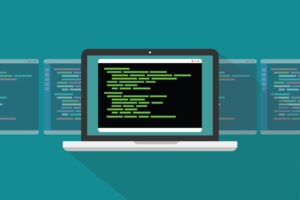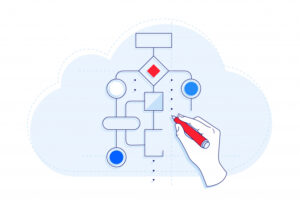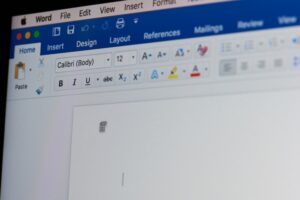
Is this the real life? Is this just an AI fantasy?
As AI continues its rapid advance into creative industries, a growing question confronts music fans: how can listeners tell whether their new favourite artist is a real person or an algorithmic construction?
The debate has intensified in recent months as AI-generated songs proliferate across streaming platforms. While many listeners assume they would instinctively recognise a synthetic track, new research suggests the opposite. A survey by Deezer–Ipsos found that 97% of respondents failed to identify an AI-generated song, underscoring how convincingly machines can now mimic human creativity.
But as AI reshapes the music ecosystem, experts, who spoke with the BBC, say there are still clues listeners can spot, even if those indicators are becoming increasingly subtle.
When an identity raises questions
The music world received a jolt last summer when the band The Velvet Sundown went viral, not only for their polished sound but for suspicions that the members might not exist. With no record label, only a sparse online presence and two full albums released within weeks, internet detectives grew sceptical.
The band eventually described themselves as a synthetic project “guided by human creative direction, and composed, voiced and visualised with the support of AI”. Although the creators insisted it was an artistic experiment rather than a deception, many early fans felt misled. Their airbrushed photos, non-descript backdrops and lack of live performances intensified suspicions.
The Velvet Sundown case has become emblematic of a new challenge: the blurring of boundaries between human and machine artistry. As AI tools allow creators to launch fully formed musical acts without a human face or public history, listeners increasingly struggle to determine what is authentic.
Musical traits
LJ Rich, a musician and technology specialist who began experimenting with AI music five years ago, notes how dramatically the technology has evolved. What once required hours of computing for a few seconds of audio can now be produced instantly with a single prompt.
This technological leap has contributed to what industry analysts describe as an explosion of AI-generated songs—sometimes dismissively referred to as “slop”—flooding streaming platforms.
Rich explains that formulaic structures are a common giveaway. AI often adheres strictly to verse-chorus patterns, producing songs that are catchy but emotionally thin. Vocals may sound breathless, and endings often feel abrupt or unresolved.
Lyrics offer additional clues. AI tends to produce grammatically correct but emotionally flat lines. In contrast, memorable human-written lyrics often involve odd phrasing or poetic ambiguity—such as Alicia Keys’ line “concrete jungle where dreams are made of” or The Rolling Stones’ intentional double negative in “I Can’t Get No Satisfaction”.
Prof Gina Neff from the University of Cambridge highlights another red flag: hyper-productivity. When a little-known artist suddenly releases multiple albums in a single drop, listeners may reasonably question whether a machine is doing the heavy lifting. She described one recent example where the tracks resembled “really classic rock hits that had been put in a blender”.
Imperfections and the human signature
Tony Rigg, a music industry adviser, adds that AI-generated vocals often lack the micro-imperfections that human singers naturally produce. Small strains, breaths, and emotional breaks in the voice contribute to a sense of humanity—qualities algorithms can imitate but rarely replicate convincingly.
Rigg notes that listeners may hear slightly slurred delivery, inconsistent harmonies that fade in and out, or overly pristine production. While these signs are “hints not proof”, they remain some of the few discernible markers left as AI tools grow increasingly sophisticated.
When artists use AI
AI is not only generating anonymous music; it is being embraced by established musicians seeking new creative possibilities.
Recent examples include the Beatles, who used machine learning to isolate John Lennon’s vocals for their 2023 track “Now and Then”. Artists such as Imogen Heap and Timbaland have gone further, developing AI versions of their own voices. Heap’s model, ai.Mogen, has appeared on multiple tracks and was initially created as a chatbot to help her manage overwhelming volumes of messages from fans and collaborators.
Heap acknowledges that the AI voice “does sound different if you really know my voice” but says she has worked to make it convincingly human. She emphasises that she is not attempting to mislead listeners, noting that ai.Mogen is listed as a co-contributor. Her hope is that if people connect emotionally with a song before learning its AI origins, they may reconsider their assumptions about synthetic creators.
Greater transparency
Despite the expanding presence of AI, there is currently no legal requirement for streaming platforms to label AI-generated tracks. Calls for transparency are growing, however, and some platforms have begun to act.
The streaming service Deezer launched an AI detection tool early this year, later adding labels for AI-generated music. Its research team reports that roughly a third of content uploaded to the platform—about 50,000 tracks per day—is fully AI-generated. The system quickly flagged The Velvet Sundown’s music as “100% AI-generated.”
Spotify is also preparing new measures, including a spam filter intended to limit low-quality AI “slop” from overwhelming listeners. The company has removed more than 75 million such tracks in the past year and plans to introduce metadata tags that will allow artists to disclose where AI was used in the production process.
Does it ultimately matter?
For many music fans, emotional connection is the only metric that counts. If a song resonates, they argue, the identity of its creator is secondary. Yet others emphasise the importance of informed choice, especially as AI raises profound questions about consent, originality, and the use of artists’ work in training datasets.
Hundreds of musicians, including Dua Lipa and Sir Elton John, have protested the unlicensed use of their songs in AI systems. For creators like LJ Rich, the issue opens up “weird and beautiful ethical questions” that society has only just begun to address.
She asks: “If the music makes the hairs on the back of your neck go up, does it matter if an AI wrote it or not?”
The answer, it seems, is still being written—by humans and machines alike.
The training of AI models and AI inferencing consumes vast amounts of water. How can energy and water usage be reduced?
Source of Article



